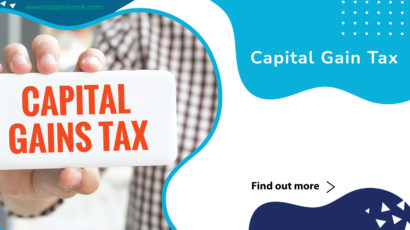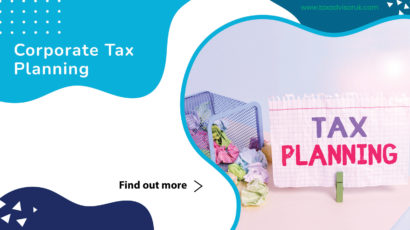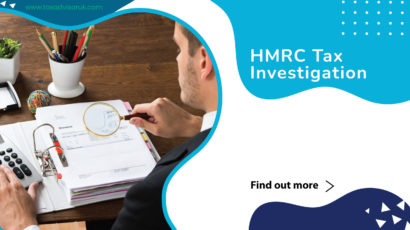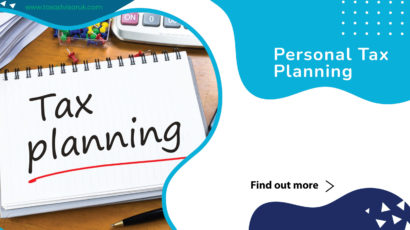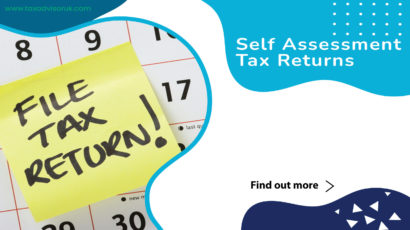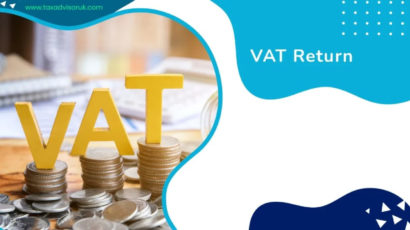Renting out a property, whether you’ve inherited it or are new to the world of buy-to-let, is a significant business. You receive the satisfaction of giving someone a much-needed home, as well as an extra source of income (and another method to save for retirement).
Being a landlord can be rewarding, but it also entails a great deal of risk and responsibility. This is one of those instances in which ignorance isn’t bliss.
So, if you’re a landlord trying to make a good profit while staying on the right side of the law, take a look at our guide for landlords.
How do I know if I’m a landlord?
Although it may appear to be a strange inquiry, it is actually quite sensible. While some people imagine landlords as wealthy land barons with vast fortunes, this isn’t always the case.
For a variety of reasons, people become landlords. Perhaps they’re going on a trip or working away from home, or they’ve moved in with a partner and now have extra space. When someone passes away, a property may become unoccupied. A variety of life situations can transform regular people into landlords — sometimes very quickly!
While you may not consider yourself a landlord, if you rent out a house for a profit, you are one for all intents and purposes. It’s also up to you to make sure you’re following the law.
Do you have permission to rent the property out?
You own the house (or have a mortgage on it), thus it must be yours to do with as you please? That’s not entirely true.
The majority of people have a normal residential mortgage on their home, allowing them to live there. If you want to rent out the property later, you’ll need authorization from your lender.
If you’re only renting out your home for a short period of time, many lenders may grant you permission with ease. You’ll need a particular buy-to-let mortgage if you don’t plan to live in the property again and will be renting it out for a long time. You’ll need to meet their financing standards for this, and it’s worth noting that interest rates on buy-to-let mortgages are typically higher as well.
If you want to rent out a leasehold property, you’ll need to get permission from the freeholder in writing.
How do I make my property more marketable?
The desirability of your property has a significant impact on how quickly it is rented. Inside, choose for a neutral colour scheme, replacing worn or soiled carpets and furnishings, and repairing any leaky faucets. While you’re at it, finish any remaining DIY projects and re-paint the walls and ceilings. It’s also worth hiring a professional cleaning.
Many landlords employ rental agents to manage tenancies and promote unoccupied properties. Even if you’re going it alone, hiring a professional to take clear images of you (decluttered!) rooms and creating an intriguing advertisement is a good idea.
How much can I charge in rent?
Searching websites like Rightmove, Zoopla, and OnTheMarket to check how much other area landlords are pricing for similar homes is a wonderful way to get a sense of what other local landlords are charging.
You’ll need to select what kind of return on investment you want when setting your prices. Also consider if you have adequate funds to cover property maintenance and mortgage payments during any periods when the house is vacant.
Do I need an HMO licence?
If your home is very large and has numerous bedrooms, you may want to consider converting it to a House of Multiple Occupation (HMO). This, however, will necessitate the acquisition of a licence.
In general, your property is an HMO if:
It is rented out by five or more people, each from a distinct household (a good example is student accommodation)
Some or all of the tenants share kitchen or bathroom facilities.
Even if your property is rented to less than five people, it may still be an HMO, so check with your local council. In fact, it’s a good idea to contact your local government and advise them of your plans to become a landlord, just in case there are any local restrictions or guidelines you should be aware of.
Obtain an EPC inspection
An energy performance certificate (EPC) examination should be next on your landlording to-do list. EPCs are an important element of preparing your house for rental. They assess its energy efficiency, allowing you to understand where adjustments are required.
After the inspection, your property will be given a letter grade ranging from A to G. A is the most energy efficient (a significant plus for renters who are concerned about their utility bills! G, on the other hand, is the least efficient. Every ten years, you’ll need a new EPC certificate.
An EPC rating of E is the absolute minimum for letting a house.
Gas and electrical safety checks for landlords
If you want to rent out your home, you must have a safe gas and electric supply (as well as appliances).
For gas, this entails having a Gas Safe registered engineer perform a gas safety inspection once a year. New renters should be given a copy of the certificate and any repairs should be completed before they move in.
In the case of electricity, landlords in the United Kingdom are required to have an electrical examination every five years. Any maintenance tasks identified in the report should be completed within 28 days, with written confirmation from your electrician. An Electrical Installation Condition Report (EICR) will be given once the work is finished.
PAT testing is required if you include any electrical appliances for tenants to use.
Fit (and maintain) carbon monoxide and smoke detectors
Another legal requirement is that this is a safety necessity. Both carbon monoxide and smoke detectors must be installed and maintained by landlords. This is especially true in homes with stationary appliances like gas fireplaces or boilers.
The rules apply to landlords in England and Wales, but they change slightly in Scotland.
Check any furniture meets fire safety regulations
Under the Furniture and Furnishings Regulations Act, all furnishings in the property must be fire resistant (1988). It is fairly uncommon for landlords to be fined significantly or even imprisoned if fire safety requirements are disobeyed.
Understand your maintenance responsibilities
You must maintain your property in good shape in addition to adhering to health and safety laws. At the very least, this entails making repairs to:
The property’s structure, as well as any extra structures such as garages
The mechanism for heating and hot water
Sanitaryware includes toilets, sinks, baths, and other sanitary items.
Any kitchen appliances that are built-in
If the home is a flat or apartment, there will be common areas.
While making repairs, landlords must also repair any damage caused by the tenant(s) or by themselves.
Buy comprehensive landlord insurance
You must maintain your property in good shape in addition to adhering to health and safety laws. At the very least, this entails making repairs to:
The property’s structure, as well as any extra structures such as garages
The mechanism for heating and hot water
Sanitaryware includes toilets, sinks, baths, and other sanitary items.
Any kitchen appliances that are built-in
If the home is a flat or apartment, there will be common areas.
While making repairs, landlords must also repair any damage caused by the tenant(s) or by themselves.
Check your tenants actually have the right to rent
Only those over the age of 18 are allowed to rent a property legally, therefore you (or your rental agency, if you’re using one) will need to show identification. For additional information, go to Gov.uk and look for your tenant’s right to rent.
Carry out tenant reference checks
Are you convinced that they will take care of your property, be a good neighbour, and pay their rent on time each month? If something isn’t quite right, don’t feel rushed.
Tenants must also be able to show proof of income and residency in the United Kingdom. Tenant referencing is a type of background check performed by landlords or, more typically, their agencies.
Checking proof of income for potential tenants
Prioritise tenants with a monthly income of at least three times the rent when examining evidence of income. If you charge £500 per month, for example, their take-home salary should be roughly £1,500 per month.
You should also be aware of your tenant’s credit history and whether or not they are in debt. Experian, for example, is your friend when it comes to credit checks. If the renter fails the credit check but you still want to rent to them, you may ask them to supply a guarantor.
Finally, consider it a job interview. Obtain references from your current and former jobs, as well as any previous landlords. Only sign on the dotted line if you’re 100% certain.
Draw up a tenancy agreement
This is a rental agreement that must be signed by both you and your tenants. If you’re doing it yourself, one of the online templates can come in handy. If you use a letting agency, they will take care of this for you.
Protect your tenant’s deposit
When tenants move in, the vast majority of landlords demand them to pay a deposit. This can help cover costs if they cause any damage, but the funds must be maintained in a government-approved tenancy deposit protection (TDP) programme rather than in the landlord’s personal bank account.
Popular schemes include the Tenancy Deposit Scheme, Deposit Protection Service, and MyDeposits, however you must inform your tenant of your choice.
If the annual rent is less than £50,000, the security deposit cannot exceed five weeks’ rent. If the annual rent exceeds £50,000, the cap is increased to six weeks’ rent.
Record inventory at your property
You must keep track of what was in the property on the day the renter moved in, as well as its condition. Before signing the inventory, tenants should have the option to double-check that they are satisfied with it.
The inventory will assist you justify any deductions from their security deposit if any damage occurs during their tenure.
Know what tax you need to pay on your rental income
Any profit you make after expenditures is taxable, therefore you’ll need to file a tax return with HMRC to disclose your earnings. The sort of tax return you file is determined by how you own your home.
Allowable costs can be claimed and offset against your tax bill to minimise the amount of tax you pay. Letting agency fees, service charges, electricity bills, council tax, accountant fees, insurance, and expenditures associated with finding new tenants are all allowable expenses. Previously, any mortgage interest payments made on rental properties were deductible, but that is no longer the case.
Do you require assistance with this? Get in touch with us!
Give your tenants a ‘How to Rent Guide’
You must provide your tenants with a copy of the government’s How to Rent Guide. It is beneficial to both landlords and tenants in the private sector since it assists them in understanding their rights and duties.
If you don’t disclose this, you may find it difficult to pursue legal action if it becomes necessary in the future.
Understand about gaining access to your rental property
Yes, it’s your home, but it doesn’t give you the right to come and go whenever you want. And, let’s face it, no one likes to walk in on someone who has just gotten out of the bath.
Landlords, on the other hand, may require access to make repairs and perform upkeep. You should give your tenants at least 24 hours’ notice if this is the case. Don’t just walk in even if you have a key!
Of course, if water is gushing out of nowhere or there is another emergency, giving 24 hours’ notice may not be feasible. However, you should still notify your tenants when you’re leaving.
When it comes to maintenance, keep significant projects to a bare minimum if at all possible. Keep in mind that if any remedial work is very inconvenient, tenants have the right to request a temporary rent decrease. This is referred to as a rent abatement.’
How TaxAdvisor UK can help
At TaxAdvisor UK , our experts will provide you 30 minutes free consultation and help you in managing all your tax and accounting work. Speak to our expert accountants, tax advisor on (0203) 5381276 or fill an online form today. We can have a consultation session over the phone, virtual or face to face meeting and will provide you with a no obligation fixed quote




